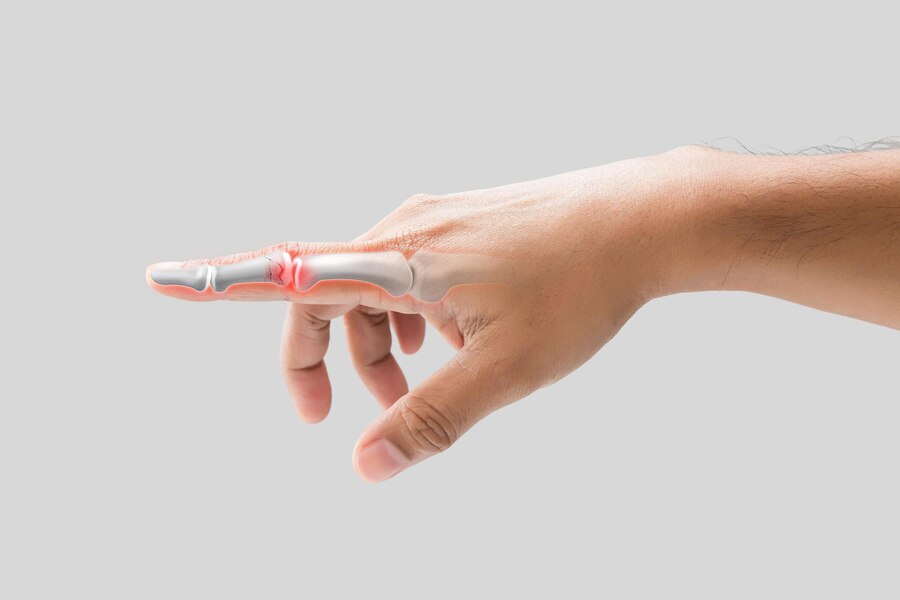Understanding Orthopedic Urgent Care for Trigger Finger
 Trigger finger, also known as stenosing tenosynovitis, occurs when the tendon that bends a finger becomes inflamed and swollen, making it difficult to move smoothly through the sheath that surrounds it. This can lead to pain, stiffness, locking, and popping sensations in the affected finger. While many cases of trigger finger can be managed with conservative measures, such as rest and splinting, some individuals may experience worsening symptoms that require immediate medical attention.
Trigger finger, also known as stenosing tenosynovitis, occurs when the tendon that bends a finger becomes inflamed and swollen, making it difficult to move smoothly through the sheath that surrounds it. This can lead to pain, stiffness, locking, and popping sensations in the affected finger. While many cases of trigger finger can be managed with conservative measures, such as rest and splinting, some individuals may experience worsening symptoms that require immediate medical attention.
What is Trigger Finger?
Trigger finger is a condition that affects the tendons responsible for bending the fingers. These tendons pass through a series of tunnels or sheaths. When the tendon becomes inflamed, it can cause narrowing within the sheath, making it difficult for the tendon to glide smoothly. This results in the characteristic locking or snapping motion of the finger.
Causes of Trigger Finger
Trigger finger can be caused by several factors, including:
- Repetitive Hand Movements: Frequent gripping or repetitive motions can strain the tendons.
- Underlying Health Conditions: Conditions like diabetes and rheumatoid arthritis increase the risk of trigger finger.
- Age and Gender: Middle-aged individuals and women are more prone to developing trigger finger.
- Occupational Risks: Jobs requiring extensive hand use, such as farming or musicianship, can contribute to the condition.
Symptoms of Trigger Finger
Recognizing the symptoms of trigger finger early is crucial for effective treatment. Common symptoms include:
- Pain and Tenderness: Often at the base of the affected finger or thumb.
- Stiffness: Particularly noticeable in the morning.
- Clicking or Snapping Sensation: When moving the finger.
- Finger Locking: In severe cases, the finger may remain stuck in a bent position.
- Swelling: Sometimes accompanied by a small bump or nodule.
Why Seek Orthopedic Urgent Care for Trigger Finger?
Orthopedic urgent care specializes in diagnosing and treating musculoskeletal issues, including trigger finger. Prompt treatment can prevent complications, reduce pain, and restore normal finger function.
Benefits of Orthopedic Urgent Care
- Specialized Expertise: Orthopedic specialists are trained to handle tendon and joint issues effectively.
- Quick Diagnosis: Advanced imaging techniques and physical exams enable rapid identification of the problem.
- Comprehensive Treatment Options: Orthopedic urgent care provides a range of treatments, from conservative methods to surgical interventions.
Treatment Options for Trigger Finger
Treatment for trigger finger depends on the severity of the condition. Options range from non-invasive methods to surgical procedures.
Non-Surgical Treatments
- Rest and Activity Modification
- Avoiding activities that exacerbate symptoms can help reduce inflammation.
- Splinting
- A splint can keep the affected finger straight and limit movement during healing.
- Medications
- Nonsteroidal anti-inflammatory drugs (NSAIDs) can alleviate pain and swelling.
- Steroid Injections
- Corticosteroid injections can reduce inflammation and provide relief for several months.
Surgical Treatments
When non-surgical methods fail, surgery may be necessary.
- Percutaneous Release
- A minimally invasive procedure where a needle is used to release the tendon.
- Open Surgery
- A small incision is made to widen the tendon sheath, allowing smooth movement.
Recovery and Post-Treatment Care
Recovery time varies depending on the treatment method. Most patients experience significant improvement within weeks. Key aspects of post-treatment care include:
- Physical Therapy: Exercises to improve range of motion and strength.
- Pain Management: Medications and icing can alleviate post-treatment discomfort.
- Follow-Up Appointments: Regular check-ups ensure proper healing and address any complications.
When to Seek Immediate Care
Seek immediate orthopedic urgent care if you experience:
- Severe pain and swelling.
- Finger locking in a bent position.
- Inability to perform daily tasks.
Prompt care ensures that the condition does not worsen and improves the chances of a full recovery.
Conclusion
Trigger finger, though common, can significantly impact daily activities if left untreated. Orthopedic urgent care provides timely and effective solutions, ensuring relief from pain and restoring finger mobility. If you or someone you know is experiencing symptoms of trigger finger, do not hesitate to consult an orthopedic specialist for comprehensive care.
Connect with our Orthopedic urgent care clinic for effective treatment of trigger fingers (469) 805-4561 or visit us https://specialtycareclinics.com/locations/fort-worth/
